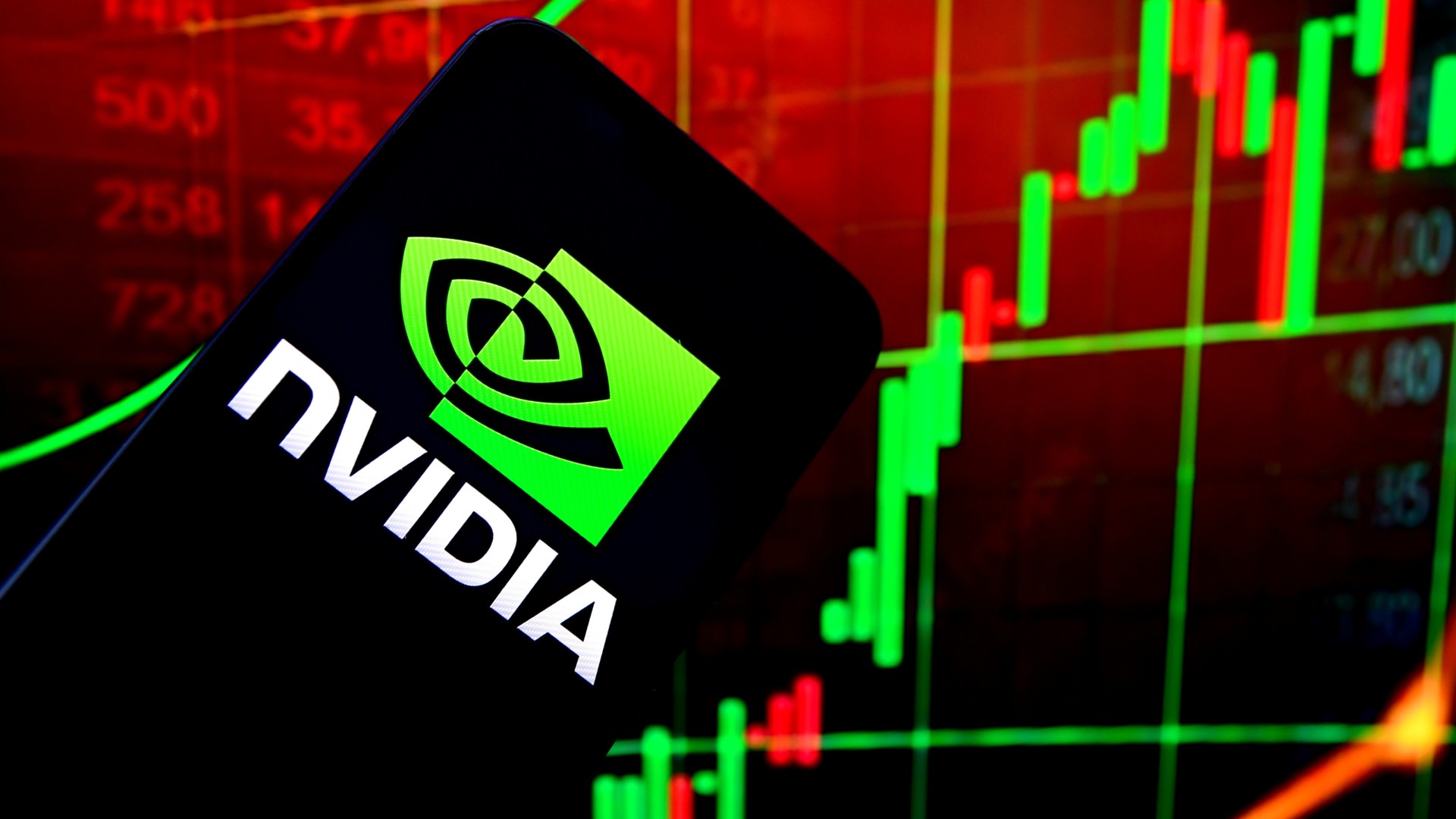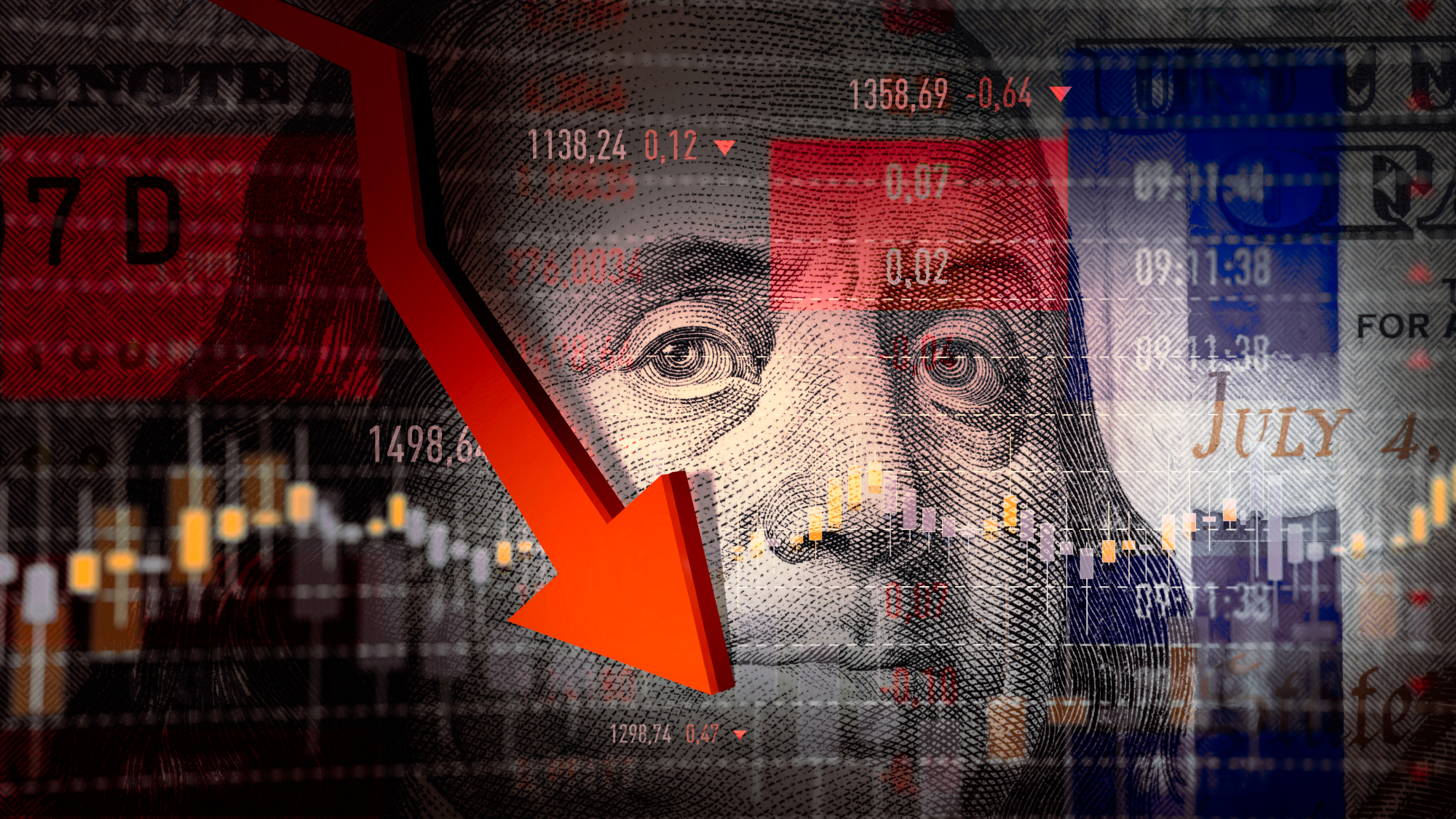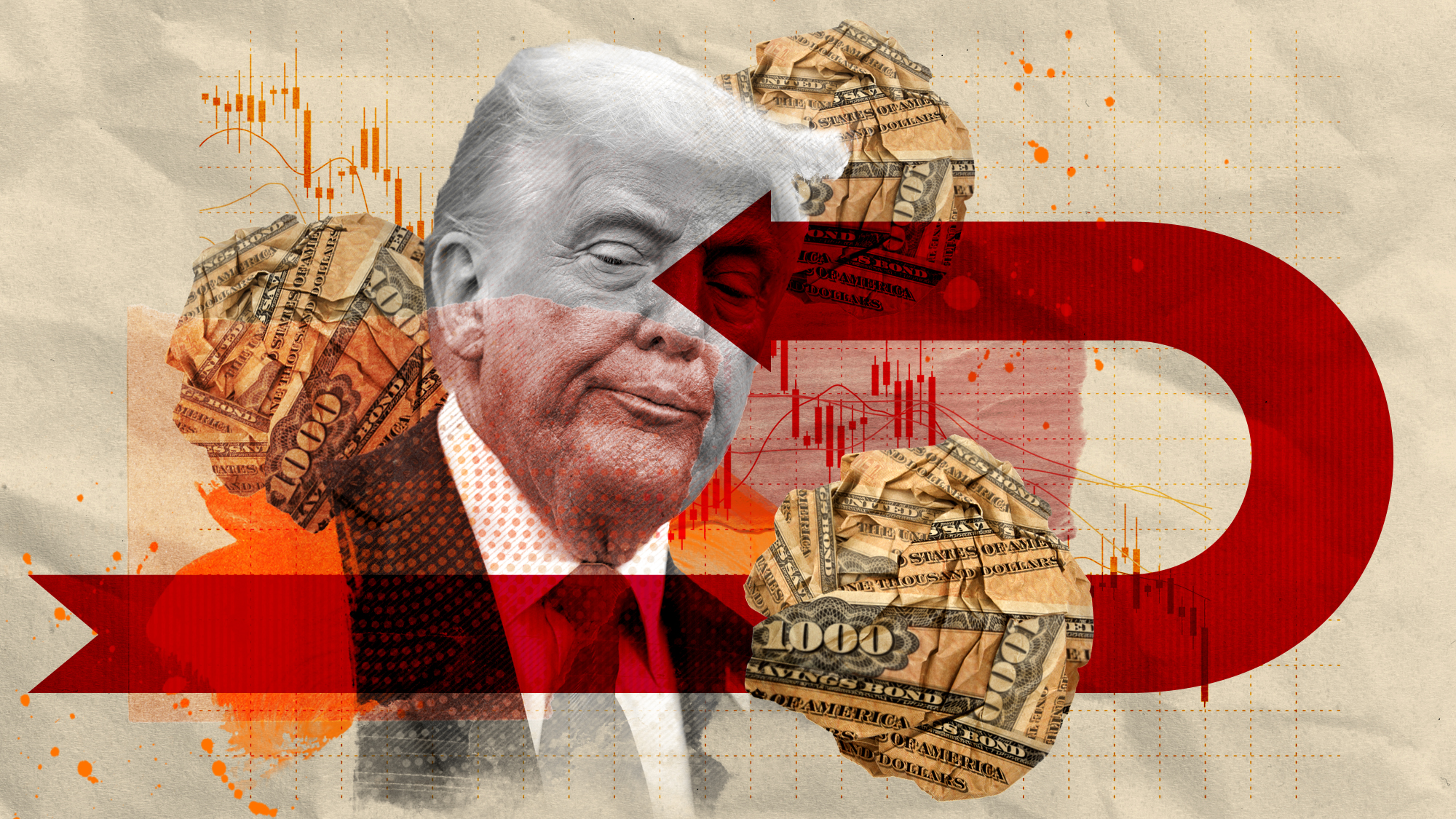What the stock market knows
Publicly traded companies are going to wallop small businesses


A free daily email with the biggest news stories of the day – and the best features from TheWeek.com
You are now subscribed
Your newsletter sign-up was successful
It's hard to identify much good economic news these days.
First quarter GDP figures show the economy contracted at an annualized rate of 4.8 percent, and the second quarter results are expected to be much worse. The unemployment rate may already have reached levels not seen since the Great Depression, and is still rising. And while deaths from COVID-19 may have peaked nationally, we don't know how long the plateau is going to be, and some very populous areas — like California — are still seeing rising case loads.
Nor is America prepared to contain future outbreaks if it tries to reopen. America's testing infrastructure continues to lag well behind what would be needed to replicate South Korea's so-far successful approach, but with cabin fever growing the political momentum is behind loosening restrictions sooner than later, which may be setting us up for a bad second wave of infections with further economic damage. Meanwhile, even China, which believes it has largely licked the virus, is seeing a very sluggish recovery in its aftermath. Pessimism would seem to be more than warranted.
The Week
Escape your echo chamber. Get the facts behind the news, plus analysis from multiple perspectives.

Sign up for The Week's Free Newsletters
From our morning news briefing to a weekly Good News Newsletter, get the best of The Week delivered directly to your inbox.
From our morning news briefing to a weekly Good News Newsletter, get the best of The Week delivered directly to your inbox.
But take a walk over to Wall Street, and things look a whole lot sunnier. As of this writing, the S&P 500 index is up over 3 percent just since the weekend, and up over 33 percent since its late-March lows. It feels like the stock market is living in an alternate reality.
Well, maybe it is.
Before explaining what I mean by that, I should stress that while the current situation is very bad indeed, it's never wise simply to project that situation into the future. The market's job is to discount all the various possibilities — and those are not all gloomy. New treatments are being tested all the time, and though good news (like the latest claims from Gilead Sciences for its anti-viral drug, remdesivir) should be taken with a grain of salt, a breakthrough on that front would have huge implications for fighting the virus, and therefore the prospects of economic recovery. Even in the worst-case scenario on the containment front, where we face hundreds of thousands or even millions of deaths, the long-term economic cost of the virus itself may be limited, so long as the virus does burn itself out rather than recurring annually. Human societies and free economies are highly adaptable, and the market may be discounting those facts better than incredulous observers think.
But there is another possibility worth considering. The market might be fairly rational in its pricing, but also not pointing to a meaningfully higher probability of a quick recovery. Instead, it might be saying something about what that recovery will look like.
A free daily email with the biggest news stories of the day – and the best features from TheWeek.com
The market is not a mirror of the economy, nor is it supposed to be. Rather, it's supposed to measure the present value of future profits of publicly traded companies. That value does go up if the economy is expected to grow, all else being equal. But it also goes up if returns on other assets — such as bonds — are expected to be very low or even negative. And it also goes up if the profits of publicly traded companies are expected to grow as a percentage of the economy.
Both of those factors are likely at play in today's market. When interest rates are at zero, the expected nominal return on the lowest-risk instruments, like treasury bonds, is similarly extremely low, or even negative. (Negative expected nominal returns are perfectly possible if the market is anticipating deflation, which would make real returns positive, or if a high enough premium is accorded to the combination of liquidity and safety that assets like treasury bonds provide.) That puts an effective floor under the value of equities, which at least have the potential to generate a positive return.
The other factor may be even more important, though. The consequences of the virus and the measures enacted to fight it are crushing the economy — but they're not crushing everyone equally. Some industries, like travel and tourism, are going to be hit harder than some others, like home-video streaming services — that's part of the dynamic adaptation that will ultimately serve us well. But one notable effect across the economy is that larger and more powerful businesses are in a position to survive better than small ones, which are less able to adapt as well as less able to sway the government to support them. Chain restaurants are in a position to consolidate more of the restaurant dollars as independent restaurants go under. Amazon is poised to destroy even more physical retail. And so forth.
That has significant implications for a possible disconnect between the stock market and the real economy. Small companies are unlikely to be represented on the exchanges in the first place, and even more unlikely to be represented in big indices; a transfer of business from small private companies to large public companies would be expected to make the market go up even if the real economy didn't change at all. As competition shrinks, large companies gain more market power, which means they are more able to extract rents from consumers. They will also have more ability to extract concessions from workers — which businesses generally do during periods of economic retrenchment.
The stock market, in other words, may be rationally assessing not only the prospects of an economic recovery, but the differential character of that recovery: one that benefits larger, publicly-traded companies at the expense of small businesses, and business interests in general at the expense of labor. Add that to the reasonable expectation that the government will do anything possible to avoid an outright spiral into depression, and maybe the stock market's relatively upbeat take doesn't look quite so crazy after all.
That doesn't mean the stock market is a "good buy" at these levels. I have no particular reason to believe I can forecast the future any better than anybody else. Moreover, if a major reason why the stock market has bounced back is that interest rates are so low, that's an equally good reason to expect that stock market returns will be low going forward as well.
It just means that the stock market might not be a very good proxy for predicting most people's personal fortunes in the years to come.
Want more essential commentary and analysis like this delivered straight to your inbox? Sign up for The Week's "Today's best articles" newsletter here.
Noah Millman is a screenwriter and filmmaker, a political columnist and a critic. From 2012 through 2017 he was a senior editor and featured blogger at The American Conservative. His work has also appeared in The New York Times Book Review, Politico, USA Today, The New Republic, The Weekly Standard, Foreign Policy, Modern Age, First Things, and the Jewish Review of Books, among other publications. Noah lives in Brooklyn with his wife and son.
-
 5 cinematic cartoons about Bezos betting big on 'Melania'
5 cinematic cartoons about Bezos betting big on 'Melania'Cartoons Artists take on a girlboss, a fetching newspaper, and more
-
 The fall of the generals: China’s military purge
The fall of the generals: China’s military purgeIn the Spotlight Xi Jinping’s extraordinary removal of senior general proves that no-one is safe from anti-corruption drive that has investigated millions
-
 Why the Gorton and Denton by-election is a ‘Frankenstein’s monster’
Why the Gorton and Denton by-election is a ‘Frankenstein’s monster’Talking Point Reform and the Greens have the Labour seat in their sights, but the constituency’s complex demographics make messaging tricky
-
 Did markets’ ‘Sell America’ trade force Trump to TACO on Greenland?
Did markets’ ‘Sell America’ trade force Trump to TACO on Greenland?Today’s Big Question Investors navigate a suddenly uncertain global economy
-
 Texas is trying to become America’s next financial hub
Texas is trying to become America’s next financial hubIn the Spotlight The Lone Star State could soon have three major stock exchanges
-
 What a rising gold price says about the global economy
What a rising gold price says about the global economyThe Explainer Institutions, central banks and speculators drive record surge amid ‘loss of trust’ in bond markets and US dollar
-
 Is a financial market crash around the corner?
Is a financial market crash around the corner?Talking Points Observers see echoes of 1929
-
 The AI bubble and a potential stock market crash
The AI bubble and a potential stock market crashToday's Big Question Valuations of some AI start-ups are 'insane', says OpenAI CEO Sam Altman
-
 DORKs: The return of 'meme stock' mania
DORKs: The return of 'meme stock' maniaFeature Amateur investors are betting big on struggling brands in hopes of a revival
-
 Dollar faces historic slump as stocks hit new high
Dollar faces historic slump as stocks hit new highSpeed Read While stocks have recovered post-Trump tariffs, the dollar has weakened more than 10% this year
-
 How the US bond market works – and why it matters
How the US bond market works – and why it mattersThe Explainer Donald Trump was forced to U-turn on tariffs after being 'spooked' by rise in Treasury yields
